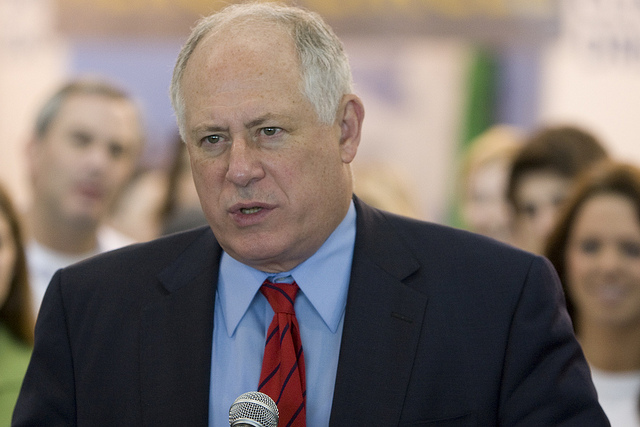Illinois is in a fiscal bind, and Rich Miller—founder of CapitolFax and tab-keeper on all things Illinois politics—explores in his recent column a policy that could raise $2 billion dollars.
The idea: levying a tax on retirement income.
From Miller:
Illinois is facing a $4 billion hole in its 2015 budget when the 2011 income tax increase automatically starts to roll back on Jan. 1. That’s a huge headache for whoever wins the Nov. 4 election, Gov. Pat Quinn or Republican nominee Bruce Rauner.
Illinois is leaving $2 billion on the table by not taxing retirement income, studies have shown. That missed revenue is escalating every year. Total retirement income in Illinois is growing by 6.5 percent a year, compared with just 1.9 percent annual growth for personal income that is taxed, according to a study by the Civic Federation.
Illinois is one of just three states that exempt pension income from taxation, according to the Chicago Metropolitan Agency for Planning.
Former Illinois Gov. Jim Thompson, who passed the law outlawing retirement income taxation, had this to say on the issue:
“There’s a whole lot of people in this state who are trying to exist on just Social Security or a low governmental pension,” he says. Senior citizens already pay federal income taxes, “and once they get through doing that there’s not enough left, especially when the state income tax has jumped up to the place it is.”
To that, Miller proposes an idea that might be more palatable to opponents of the tax:
The Civic Federation found that taxpayers earning less than that accounted for only about a quarter of total retirement income in the state. So taxing retirement income above $50,000 would still bring in $1.5 billion a year, which is nothing to sneeze at.
Not to mention that barely a third of Illinois seniors even know that their income isn’t being taxed in the first place, according to a Capitol Fax/We Ask America survey of 816 Illinoisans age 65 and over that I commissioned.
Both Gov. Quinn and Bruce Rauner have publicly stated they won’t support a tax on retirement income.
A tax on retirement income is overwhelmingly unpopular among seniors, as Rich Miller found out when conducting an informal survey.
When Miller asked seniors whether they would support a policy of taxing retirement income, 88 percent responded “No”.
Photo by Chris Eaves via Flickr CC License




